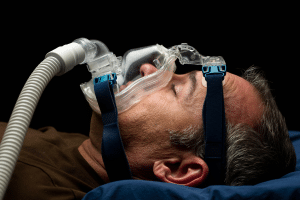Alcohol Use Disorder (AUD) is one of the most common and complex challenges faced by veterans. It’s more than just drinking too much or too often—it’s a medical condition where alcohol use causes distress, harm, or impairment in daily life. For many veterans, alcohol becomes a coping mechanism to manage the stress, trauma, or physical pain resulting from military service.
Research shows that veterans are at a significantly higher risk for alcohol misuse compared to the general population. Studies from the VA have found that about one in ten veterans struggles with some form of substance use disorder, and alcohol remains the most prevalent. Veterans often turn to alcohol as a form of self-medication to deal with conditions like post-traumatic stress disorder (PTSD), traumatic brain injury (TBI), or chronic pain. Unfortunately, this coping strategy can worsen other health issues such as depression, anxiety, and suicidal ideation.
The VA recognizes alcohol use disorder as a legitimate health concern, but the connection between Alcohol Use Disorder and VA disability benefits is not always straightforward.

Can Veterans Receive VA Disability for Alcohol Use Disorder?
The VA typically does not grant disability compensation for alcohol use disorder as a primary condition. However, that doesn’t mean veterans can’t receive benefits for related issues. In many cases, alcohol use disorder acts as a bridge to other serious health conditions that may qualify as service-connected disabilities.
For example, if a veteran develops alcohol use disorder as a result of an existing service-connected mental health condition—such as PTSD or major depressive disorder—then any resulting secondary conditions may also be eligible for compensation. These secondary conditions could include liver disease, diabetes, hypertension, or cognitive impairment caused by long-term alcohol use.
In this way, alcohol use disorder becomes part of a broader health picture. While the VA doesn’t compensate directly for AUD itself, it may recognize the chain of causation if the disorder stems from a service-connected disability.
The Research Behind Alcohol Use and Veterans’ Health
Research has consistently linked alcohol misuse among veterans to mental and physical health challenges. Key findings include:
- High rates of comorbidity: Veterans with PTSD or TBI are far more likely to develop alcohol use disorder.
- Chronic pain link: Many veterans suffering from pain conditions report using alcohol to manage discomfort.
- Health deterioration: Heavy drinking can lead to liver disease, heart problems, nerve damage, and cognitive decline.
Alcohol use disorder rarely exists in isolation. It is often intertwined with other medical conditions and emotional struggles. Recognizing these interconnections is essential when seeking treatment or filing a VA disability claim.
How Alcohol Use Disorder Can Lead to Other Disabilities
Long-term or heavy alcohol consumption can cause a range of serious medical conditions, many of which may qualify for VA disability benefits if linked to military service. Examples include:
- Liver damage: Chronic alcohol use can lead to cirrhosis, fatty liver disease, and liver failure.
- Cardiovascular issues: Excessive drinking raises the risk of high blood pressure, heart disease, and stroke.
- Metabolic disorders: Alcohol often contributes to weight gain and type 2 diabetes.
- Neurological effects: Over time, alcohol can cause neuropathy and cognitive decline resembling dementia.
- Gastrointestinal disorders: Stomach ulcers and pancreatitis are also common among long-term heavy drinkers.
When alcohol use disorder develops as a symptom of another service-connected condition, these secondary illnesses can be viewed as service-connected by extension. For example, if a veteran begins drinking to cope with PTSD and later develops cirrhosis, the cirrhosis may be compensable as a secondary condition.
Understanding Willful Misconduct and the VA’s Stance
The concept of willful misconduct is a critical factor in determining VA disability eligibility. Under VA law, compensation is typically denied for disabilities that result from a veteran’s own willful misconduct. If the VA determines that alcohol use was purely voluntary or reckless, the resulting conditions may not qualify for benefits.
However, the distinction becomes important when alcohol use disorder is caused by another service-connected condition. For instance, if a veteran’s heavy drinking stems from PTSD, depression, or chronic pain, then it may not be considered willful misconduct. Instead, it can be viewed as a symptom or result of an existing disability.
In such cases, medical documentation and a clear personal history are essential. Evidence showing that alcohol use was a form of self-medication can make the difference between a denied and an approved claim. It’s often beneficial to have a detailed nexus letter from a healthcare provider linking the alcohol use to the primary service-connected condition.
VA Resources for Veterans Struggling with Alcohol Use
The VA provides extensive support for veterans dealing with alcohol use disorder and other substance-related issues. Through its medical centers and community programs, the VA offers both inpatient and outpatient services that address addiction and mental health together.
Some of the available treatment options include:
- Medical detoxification under supervision.
- Medication-assisted treatment (MAT) for alcohol cravings.
- Cognitive Behavioral Therapy (CBT) and Motivational Enhancement Therapy (MET).
- Family and couples counseling to repair relationships affected by substance use.
- Relapse prevention programs tailored for veterans.
- Residential and outpatient rehabilitation for different levels of need.
- Self-help and peer support groups to promote long-term recovery.
Veterans can find these resources directly on VA.gov by searching for “Substance Use Treatment for Veterans.” The site provides information on recognizing symptoms, understanding treatment options, and finding local support centers.
Even if a veteran isn’t service-connected for VA disability, they are still eligible for many of these recovery programs. The VA encourages all veterans to seek help early and provides confidential care regardless of disability status.
Recognizing the Symptoms of Alcohol Use Disorder
Understanding when alcohol use becomes a disorder is critical. According to VA and national health guidelines, you might have alcohol use disorder if you experience two or more of the following:
- Drinking more or longer than intended
- Repeated attempts to cut down without success
- Spending significant time drinking or recovering
- Craving alcohol strongly
- Neglecting work, school, or family duties
- Continuing to drink despite health problems
- Experiencing withdrawal symptoms when not drinking
- Developing tolerance (needing more to achieve the same effect)
- Giving up important social or recreational activities
- Drinking in hazardous situations
- Continuing to drink despite relationship problems
Recognizing these signs early and seeking treatment can prevent long-term damage and improve quality of life.
The Bigger Picture: Healing and Support
Alcohol use disorder is not a moral failing—it’s a treatable medical condition. For veterans, it often represents a response to invisible wounds sustained during service. The VA and numerous veteran-focused organizations have made tremendous strides in providing compassionate, evidence-based care to those struggling with substance use.
If you or someone you know is facing challenges with alcohol use, it’s important to remember that help is available. Support groups, VA programs, and mental health professionals are dedicated to guiding veterans through recovery, one step at a time.
Final Thoughts
Alcohol use disorder remains a significant health concern among veterans, but it’s also a condition that can be managed and overcome with the right resources. While the VA may not provide disability compensation directly for AUD, it recognizes the profound impact alcohol can have on physical and mental health—especially when tied to service-connected conditions.
Understanding how to navigate the VA’s rules around willful misconduct, gathering solid medical evidence, and taking advantage of available resources can make all the difference in both treatment and disability claims.
No veteran should face this battle alone. The road to recovery starts with awareness, honesty, and the willingness to seek help.
Also read: Glaucoma and VA Disability
At Prestige Veteran Medical Consulting, a veteran-owned company, we specialize in Independent Medical Opinions (IMOs) known as Nexus letters.
Our purpose is to empower YOU, the veteran, to take charge of your medical evidence and provide you with valuable educational tools and research to guide you on your journey.
Understanding the unique challenges veterans face, our commitment lies in delivering exceptional service and support.
Leveraging an extensive network of licensed independent medical professionals, all well-versed in the medical professional aspects of the VA claims process, we review the necessary medical evidence to incorporate in our reports related to your VA Disability Claim.
Prestige Veteran Medical Consulting is not a law firm, accredited claims agent, or affiliated with the Veterans Administration or Veterans Services Organizations. However, we are happy to discuss your case with your accredited VA legal professional.













